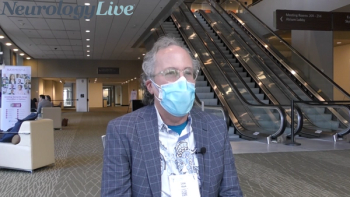
The director of the Division of Movement Disorders at the USC Keck School of Medicine discussed the early reactions behind reflex tears as a potential biomarker for Parkinson disease. [WATCH TIME: 2 minutes]

The director of the Division of Movement Disorders at the USC Keck School of Medicine discussed the early reactions behind reflex tears as a potential biomarker for Parkinson disease. [WATCH TIME: 2 minutes]
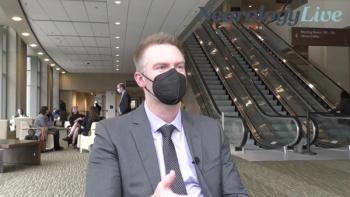
The chief medical partner of neurology, ophthalmology, and internal medicine at Genentech shared his perspective on the steps the field has taken to improve clinical trials and therapies for neurodegenerative diseases such as Alzheimer disease. [WATCH TIME: 3 minutes]
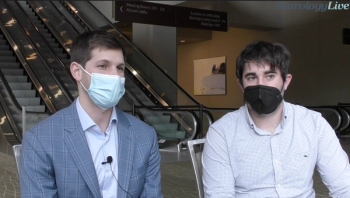
The co-CEOs and co-founders of Amylyx Pharmaceuticals discussed their immediate thoughts to the recent FDA AdComm meeting, which voted against evidence of efficacy for AMX0035 in ALS. [WATCH TIME: 3 minutes]

The director of the Division of Movement Disorders at the USC Keck School of Medicine provided insight on the next steps to justify whether reflex tears are a reliable biomarker for Parkinson disease.
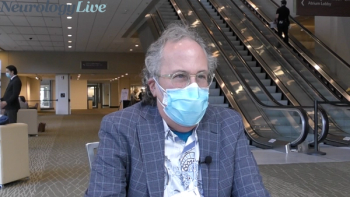
The director of the Division of Movement Disorders at the USC Keck School of Medicine discussed the efforts needed to validate tears as a biomarker in patients who don’t present with typical Parkinson disease. [WATCH TIME: 4 minutes]
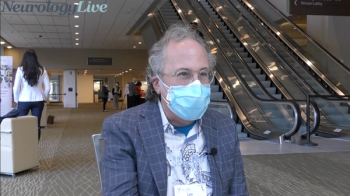
The director of the Division of Movement Disorders at the USC Keck School of Medicine provided insight on the next steps in how we can expand on tears as a valuable biomarker for neurodegenerative diseases. [WATCH TIME: 4 minutes]
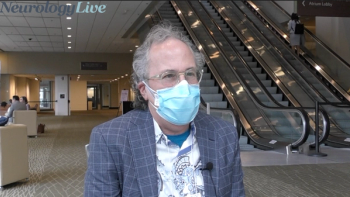
The director of the Division of Movement Disorders at the USC Keck School of Medicine commented on the potential of reflex tears as a critical biomarker of Parkinson disease. [WATCH TIME: 6 minutes]

The professor of neurology at the University of Basel provided insight on a new methodology that allows depiction of patient profiles from baseline characteristics and their associations with individual outcomes. [WATCH NOW: 5 minutes]

Peter J. McAllister, MD, FAAN, medical director and chief medical officer, New England Center for Neurology and Headache, offered his insight into data from the phase 2 STEMTRA trial in TBI and the trends he’s observed in the field of regenerative medicine.
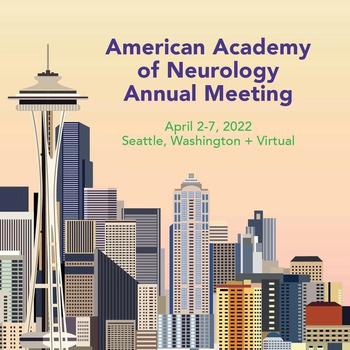
Expert clinicians offer their insight on the associations between stroke and COVID-19, treatment for traumatic brain injury, the latest on aducanumab, priorities for research in migraine, and more, from the 2022 American Academy of Neurology Annual Meeting.

Patients who switched from a twice-nightly stable regimen of Xyrem or Xywav to once-nightly FT218 reported that they preferred the new dosing schedule, along with challenges in adherence to twice-nightly dosing.

The director of the Division of Movement Disorders at the USC Keck School of Medicine discussed the phenomenon behind reflex tears and whether they can serve as a valuable biomarker for Parkinson disease.

Following respective improvements in odds of good and poor outcomes, investigators concluded that the addition of mechanical thrombectomy should be considered over best medical management practices alone.
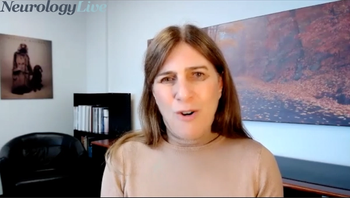
The neurologist and assistant professor at the University of Toronto discussed why elevating the voices of patients and caregivers is important to understanding and treating an individual with Alzheimer disease. [WATCH TIME: 3 minutes]

After readjusting baseline to month 12, more patients with relapsing multiple sclerosis on continuous ozanimod achieved NEDA-3 and NEDA-4 status than those on interferon ß-1a.

Despite a low percentage of patients missing work time due to their condition, a higher percentage reported impairment while working, overall work impairment, and activity impairment.
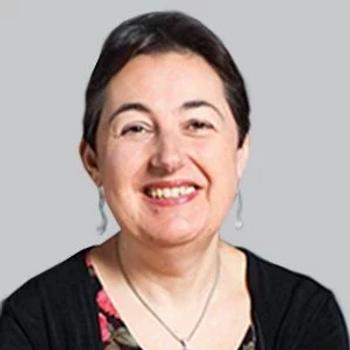
Jacqueline A. French, MD, discussed the factors that influence the challenges in treatment selection in epilepsy, and how patient conversations and comprehension of heterogeneity can help in the treatment selection process.
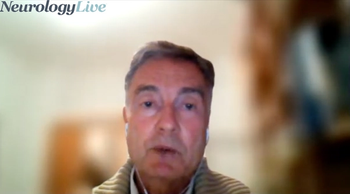
The professor of neurology at the University of Basel discussed a recent study presented at AAN 2022 on whether levels of polyunsaturated fatty acids are associated with MS disease activity or progression. [WATCH TIME: 4 minutes]

Patients treated with ofatumumab (Kesimpta; Novartis) demonstrated significant decreases in absolute and percent CD19 counts at day 5 of treatment, which persisted through the 90-day period.
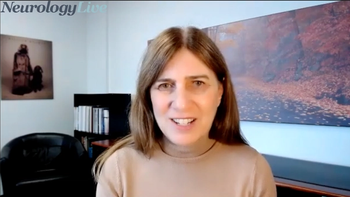
The neurologist and assistant professor at the University of Toronto provided insight on the differences between outcome measures for Alzheimer disease and how they factored into a new item-level analysis of aducanumab (Aduhelm; Biogen). [WATCH TIME: 3 minutes]

Mind Moments®, a podcast from NeurologyLive®, brings you an exclusive interview with Yasar Torres-Yaghi, MD. [LISTEN TIME: 25 minutes]
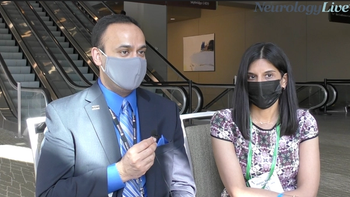
The chair and vice-chair of the Headache and Facial Pain Section of the American Academy of Neurology provided insight on projects they feel are needed to advance the care of patients with migraine-related disorders. [WATCH TIME: 4 minutes]
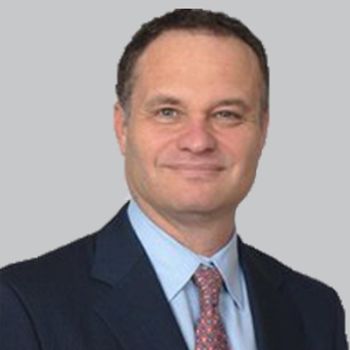
Rami H. Ben-Joseph, PhD, executive director, Jazz Pharmaceuticals, provided insight on the real-world CV-BOND study that evaluates the cardiovascular burden in patients with narcolepsy.
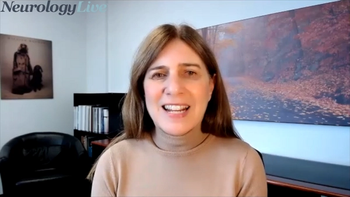
The neurologist and assistant professor at the University of Toronto detailed findings from a new analysis that supports meaningful treatment effect with aducanumab in Alzheimer disease. [WATCH TIME: 6 minutes]
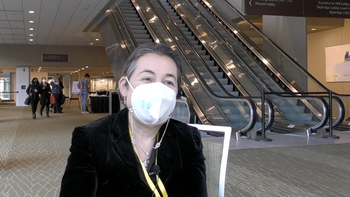
The codirector of Epilepsy Clinical Trials at NYU Langone spoke to the progress that’s been made in treating refractory epilepsy and her hopes for the future of drug development in this area of medicine. [WATCH TIME: 5 minutes]
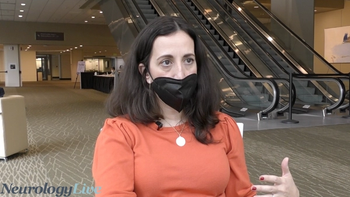
The professor of neurology at NYU Langone Grossman School of Medicine discussed what high-potential repurposed medications could be an option to treat symptoms of COVID-19 and the realistic possibility of clinical trials. [WATCH TIME: 4 minutes]
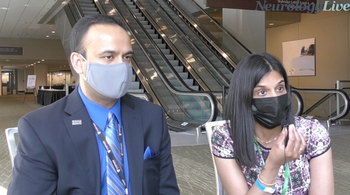
The chair and vice-chair of the Headache and Facial Pain Section of the American Academy of Neurology discussed some of the key research needs for migraine care going forward. [WATCH TIME: 3 minutes]
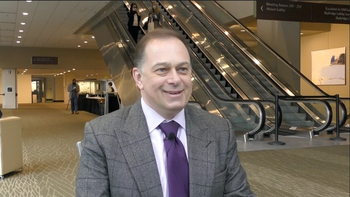
The clinical research director of the UCSF Multiple Sclerosis Center discussed the recently presented analysis on ublituximab’s effect on disability in relapsing MS and the critical need to focus on improving quality of life. [WATCH TIME: 4 minutes]
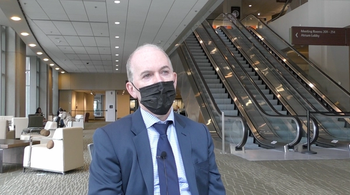
The medical director and chief medical officer of the New England Center for Neurology and Headache discussed notable data from the STEMTRA trial, and the progress made in the field of regenerative medicine. [WATCH TIME: 2 minutes]
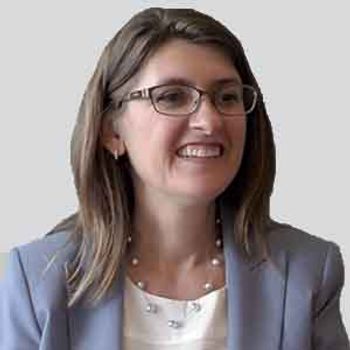
As a primary investigator for fenfluramine’s pivotal phase 3 program, Kelly Knupp, MD, MSCS, FAES, provided insight on new results presented at AAN 2022, as well as the positive ripple effect its recent approval brings to patients with Lennox-Gastaut syndrome.